You can gain a tremendous amount of SEO and marketing insights from Google Analytics.
These helpful insights can help you to discover what opportunities exist for optimizing the overall performance of your site.
Ranging from engagement metric insights to conversion metrics and more, there is no shortage of knowledge to be gained.
Check out five of these actionable insights you can learn from Google Analytics and see how you may be able to apply them to improve your SEO.
1. Custom Segments
Custom segments have been a key feature of Google Analytics for a while, allowing you to see traffic by channel, visitors who completed goals, demographic data, and much more.
Custom segments can be created from almost any facet of user data, including time on site, visits to specific pages, visitors who completed a goal, visitors from a specific location and more.
Using segments helps you learn more about the users on your site and how they engage with it.
One insightful area to explore when determining additional segments to create is in the Audience tab of Google Analytics.
If you navigate to Audience > Interests > Overview, the Overview will display a high-level look at three interests reports:
- Affinity Categories.
- In-Market Segments.
- Other Categories.
In the below example, you’ll see that almost 4 percent of visitors are Shoppers or Value Shoppers and almost 4 percent of users also work or have an interest in business marketing services.
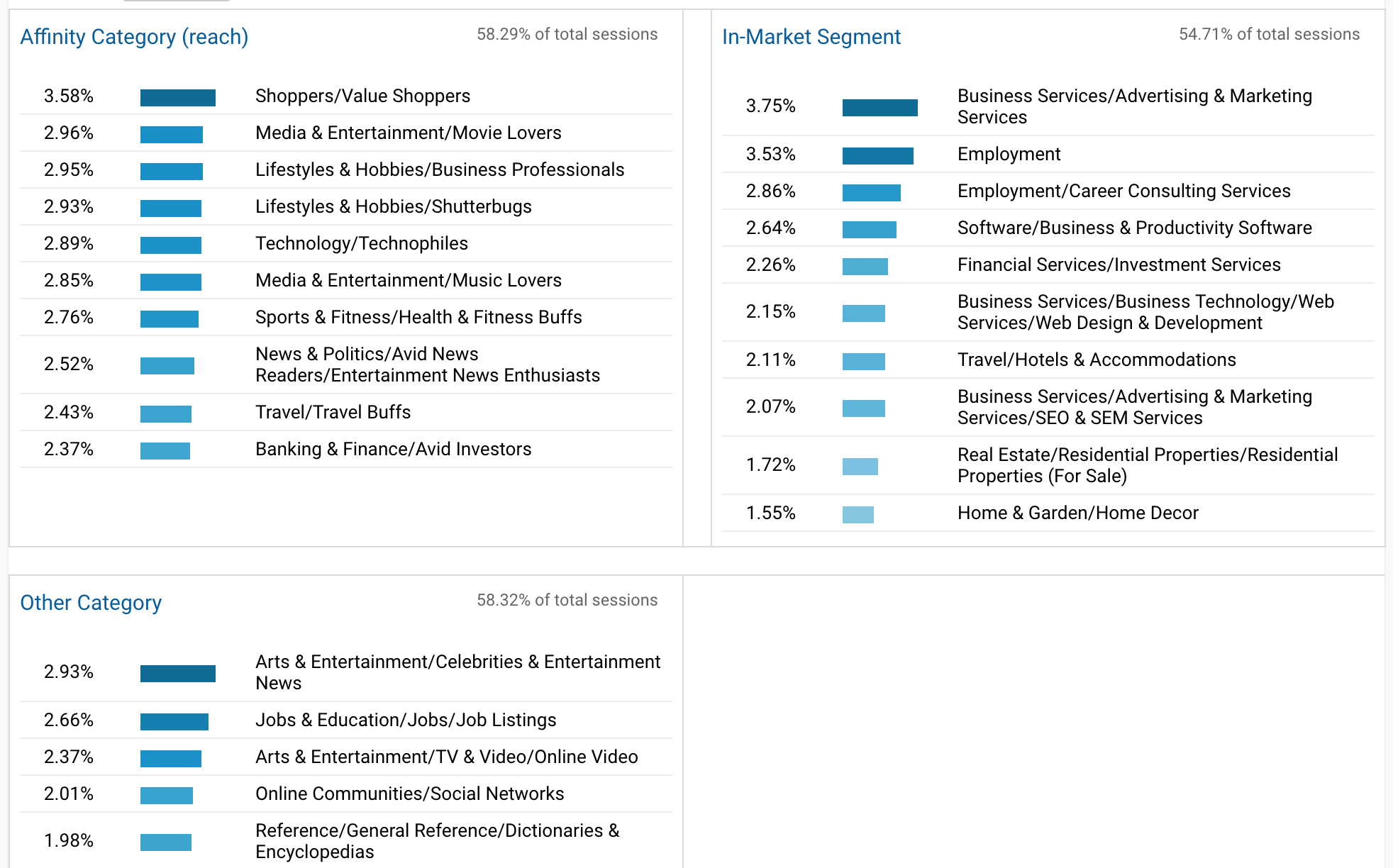
To dive deeper, navigate to Demographics under the Audience tab to view Age and Gender data.
The majority of visitors to this site are in the 25-34 age range, and skew male by a slight margin.
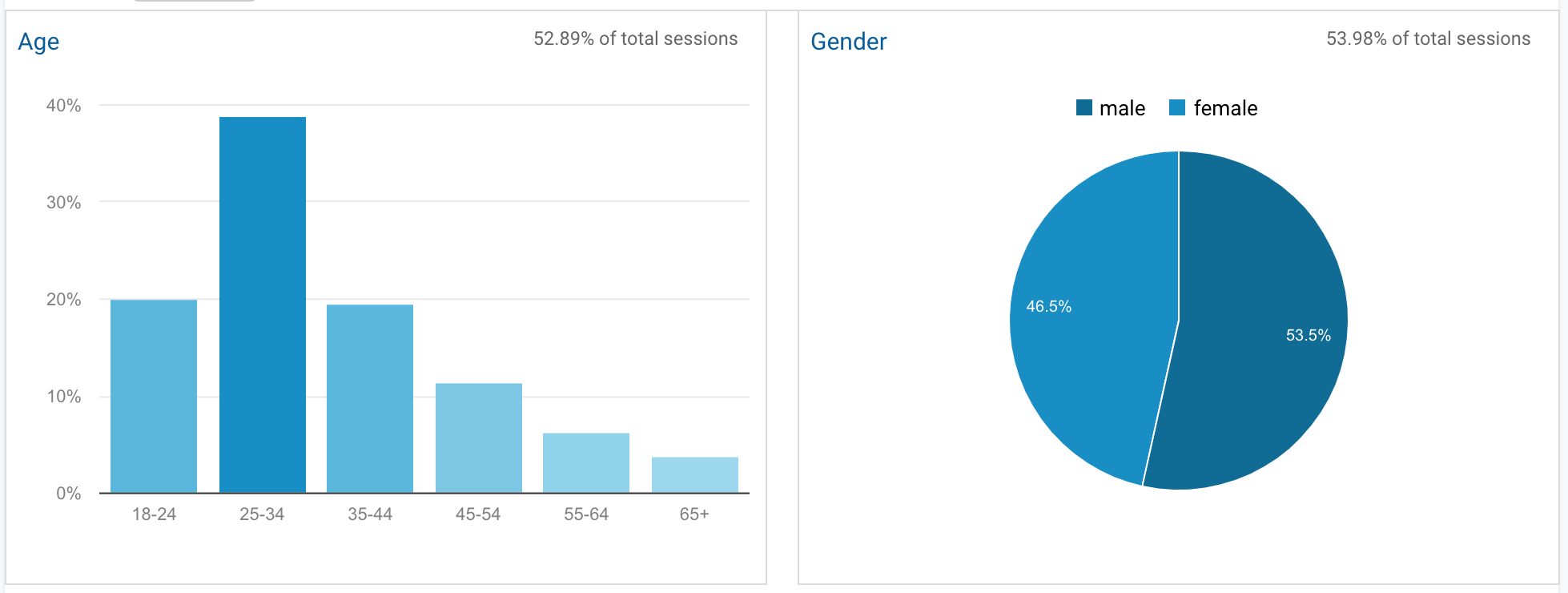
Now having this data, a custom segment can be created to track.
Return to Audience > Overview to view All Sessions.
A new segment can be created by selection +Add Segment so that we can monitor the behavior of users in this segment, the most frequent of visitors, compared to rest of the visitors to the site.
Keep in mind that you will want to set a date range for at least 6 months to a year if applicable to have a good compilation of data.
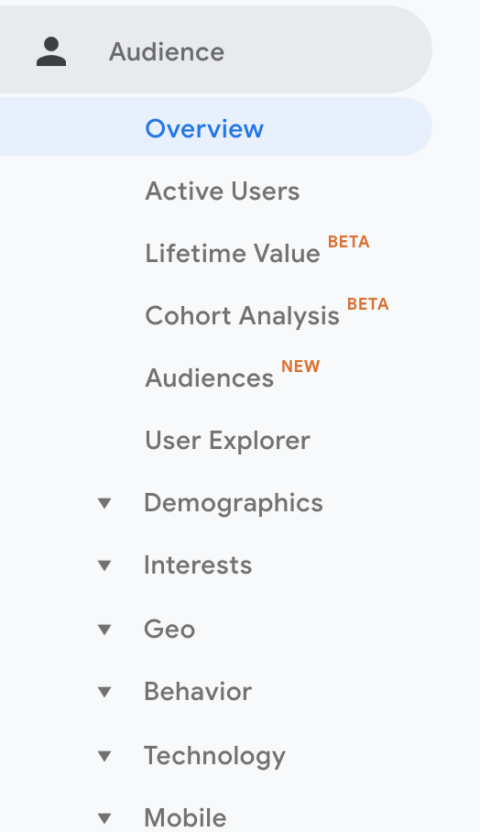
2. Monitor Mobile Traffic
Mobile traffic is consistently growing in importance.
However, instead of simply monitoring mobile traffic to a site on the whole, it’s also important to monitor the engagement levels of mobile visitors.
You can do a few things to assess this.
- View the number of mobile conversions at the individual page level. Do this by adding a mobile segment.
- Monitor the mobile bounce rate. Be on the lookout for pages with high mobile bounce rates. This can help you hone in on potential issues related to a singular page.
- Compare mobile and desktop bounce rate metrics. Doing this for the same page can provide further insight into the differences between the mobile experience and desktop experience.
3. Focus on Site Search
Do you have a search bar on your website? If so, you have an enormous opportunity to learn about what visitors are looking for when they reach your site.
You can not only gain insight into what they are searching for, but how many people are searching.
For example, if a large percentage of your traffic is using the search bar, it is most likely a strong indication that the main navigation may need to be improved on the site in order to provide users with a clearer idea of the location of what they are searching for.
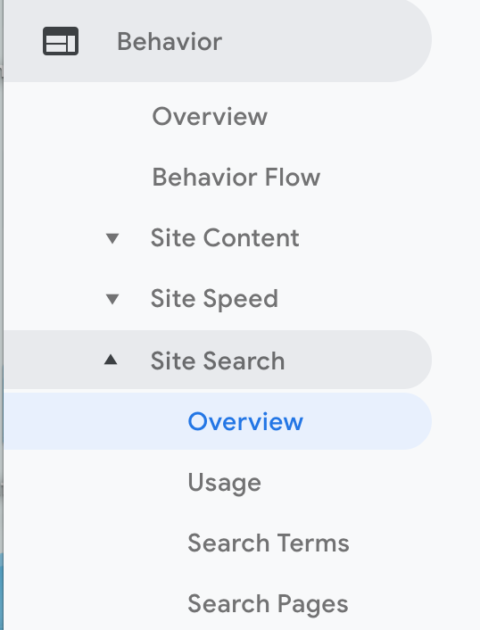
The actual search term that users are entering into the bar can also help to provide insight into content ideas.
For example, if a user is frequently searching for a term that a site does not have a great amount of content about, and it makes sense for the site to feature that content, it may mean that you could benefit and users could benefit from adding content about that topic to the website.
Or, if a user is searching for a particular product or service more frequently, perhaps that indicates that product or service should be featured more prominently on the homepage or more easily accessible on the whole.
4. Bounce Rate Can Give You Some Good Pointers
A website’s bounce rate is the percentage of people who visit your website and then leave after viewing only one page.
While some high bounce rates may not necessarily translate into a poor user experience (take sites with a lot of recipes for example), it may be indicative that visitors haven’t found what they were looking for on the site.
Say you rank highly for a very long-tail, niche term, but when a person gets to the site, the content does not speak to that query and they then leave, or “bounce.”
A website’s design and a poor UI/UX are also usually culprits for a high bounce rate.
Adjust the time frame in Google Analytics and assess your bounce rate quarter-over-quarter to determine if it has either increased or decreased.
If it has increased significantly, it may be a sign that something on the site needs updating.
5. Locate Top Performing Pages by Conversions
Understanding individual page performance and conversions that took place on each page can help provide enormous amounts of insight.
Navigate to Behavior > Site Content > Landing Pages and adjust the time periods to compare quarter-over-quarter or year-over-year.
You can look out for any negative trends on each individual page. If a specific page has seen a noticeable decline, the issue is most likely isolated to that one page.
However, if there is a negative decrease across several pages, it may be a sign that there are some more technical issues to work through.
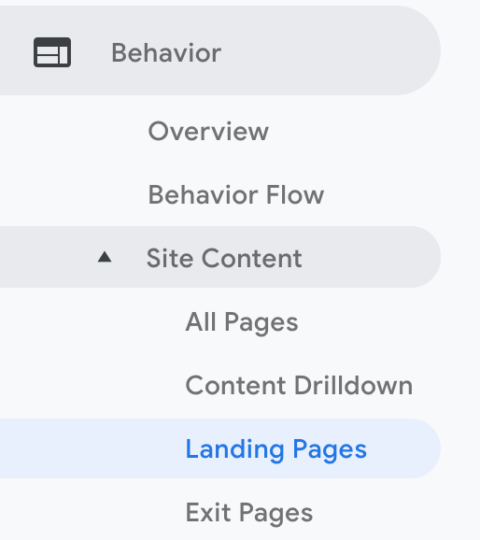

Conclusion
These are just a few of the opportunities you can tap into in Google Analytics.
Using this free tool to its full potential can help drive very valuable marketing insights that can help formulate stronger SEO strategies.
More Google Analytics Tips:
Images Credits
Screenshots by author, taken October 2018
Subscribe to SEJ
Get our daily newsletter from SEJ’s Founder Loren Baker about the latest news in the industry!
